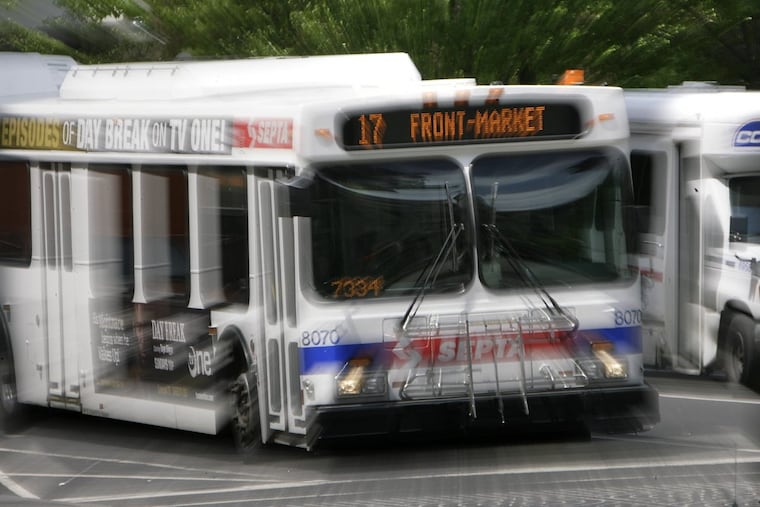ACLU challenges SEPTA's ban on political ads
The ACLU says SEPTA is restricting free speech. The transit agency says its ad space is not a public forum, and it can decide what goes there.

SEPTA's ban on political advertising is being challenged in court by the American Civil Liberties Union, which argues the prohibition is a violation of free speech rights.
The suit, filed Wednesday in U.S. District Court for the Eastern District of Pennsylvania on behalf of the Center for Investigative Reporting, was prompted by SEPTA's refusal to run a CIR advertisement that would have included a graphic highlighting racial discrimination in cities across the country, including Philadelphia, in home loan access. The suit seeks a ruling that SEPTA's policy is unconstitutional and an order forcing the agency to run the CIR ad.
"It's always a bad idea to give the government the power to choose what ideas can be heard," said Reggie Shuford, executive director of the ACLU of Pennsylvania in a statement issued Wednesday. "Debate on public issues is the cornerstone of participatory democracy. No government entity, including SEPTA, should single it out for censorship."
SEPTA defended its policy, saying that it is within its rights to restrict what appears in its advertising space because those areas are not designated public forums.
In a statement issued Wednesday, the transit agency said: "SEPTA's decision is consistent with its advertising policy, which is constitutionally sound and necessary to ensure that our vehicles and stations do not become forums for political debate and distract from our core mission of providing safe and reliable public transportation in an environment that is welcoming to customers and employees."
SEPTA adopted the policy after an anti-Muslim group, the American Freedom Defense Initiative, bought space in 2014 for ads that included an image of Adolf Hitler. SEPTA tried to bar that advertisement on the grounds it disparaged Muslims. A court threw out that justification in 2015 and the ads were displayed. By then, SEPTA had already decided to ban political ads altogether.
SEPTA's policy, approved by its board in October 2014, prevents any advertising on its vehicles that could be construed as political. That includes images of political candidates or any ads related to the action or policies of a government entity.
Other transportation agencies, including New York City's Metropolitan Transit Agency, have similar bans in place. The MTA's 2015 ban was also prompted by ads from the American Freedom Defense Initiative. More recently, the MTA also banned advertisements for alcohol, according to the New York Times, and has a ban on ads for tobacco products.